Jazz in Ghana
By John Collins
This text provides an overview of the history of jazz in Ghana.Ragtime and early jazz became popular in Ghana in the early 1900s, introduced through records, visiting minstrel groups, and the sheet music of local ballroom dance orchestras that began to be set up from 1914, such as the Excelsior Orchestra, Jazz Kings, Rag-a-jazzbo, Cape Coast Sugar Babies and Accra Orchestra.
 Ofie Kodjoe. Photo: Tigomusic
Ofie Kodjoe. Photo: Tigomusic Bibi Brew
Bibi Brew
1940s-1960s
With the influx of British and American soldiers during the Second World War swing-jazz came to Ghana and foreign and local musicians set up swing bands like the Black and White Spots and most importantly the Tempos. After the War the Tempos survived as an all Ghanaian band and, under the leadership of its trumpeter E.T. Mensah from 1948, it blended swing and Caribbean music into a dance band form of highlife that became the ‘sound track’ of the early independence era throughout West Africa.
Very important for the Tempos was its trap-drummer Kofi Ghanaba (Guy Warren). In 1950, he had briefly played bongos in the UK with Kenny Graham’s Afro-Cubists bebop band - and subsequently introduced Afro-Cuban percussion to the Tempos. After leaving the Tempos Ghanaba relocated to the States in 1955 where, from 1957, he released a string of pioneering Afro-jazz albums (first was African Speaks America Answers) and worked with jazz giants such as Max Roach, Duke Ellington and Thelonius Monk. On his various trips home in the late fifties and early sixties Ghanaba organized a string of ‘Jaazz concerts’ and also began to Africanise his jazz drum-kit.
From the late 1950s leading jazz musicians began to visit Ghana, such as pianist Ahmad Jamal and Louis Armstrong who played in Ghana in 1956 and again in 1960 on a US State Department sponsored trip. Armstrong’s All Stars clarinetist, Edmond Hall, returned to Ghana in 1959 to set up a short lived jazz band at the Ambassadors Hotel in Accra.
During the 1960s there were a number of Ghanaian bands that played modern jazz. An early one was the Dominant Seventh based at the Ambassadors Hotel that included guitarist Art Bennin, double-bassists Peter Vanderpuie and saxophonists Teddy Owusu and also George Lee who later formed his Messengers highlife dance band that was influenced by Art Blakey. Another progressive jazz combo was the Bogarte Sounds (part of the larger Uhuru highlife dance band) that was formed in 1969 and included the guitarist Stan Plange, saxist Ebo Dadson, drummer Rim Obeng and trumpeter Mac Tontoh (later a founder of the Osibisa Afro-rock group). The Uhuru band itself also included the guitarist Ebo Taylor who, after obtaining a scholarship from President Nkrumah to study music in Britain, helped introduce advanced jazz chords to Ghana.
1970s-1990s
During the 1970s, foreign jazz musicians continued to visit Ghana, such as Eddie Harris and Les McCann who performed at the Accra Soul to Soul Concert in 1971. Then the Swedish percussionist Bengt Berger and three black American artists. These were the drummer Max Roach (who came to visit Ghanaba), pianist Patti Bown and percussionist Juma Santos (Jim Riley ex-Miles Davis and Taj Mahal) who spent two years studying African drumming at the University of Ghana. In the late 1970s there was also a US State sponsored trip by the bebop trumpeter Clark Terry, singer Joe Williams and their Jolly Giants band.
By the 1970s, Ghanaian youth had moved away from dance band jazz and highlife sounds towards pop styles like rock and soul. Nevertheless, some of the fusion styles that flowed out of them like Osibisa’s afro-rock and Fela Kuti’s afrobeat, did partially draw on jazz.
During the military coups and curfews of the 1970s and 1980s there was a decline of the Ghanaian night-life scene and all forms of popular music including jazz. But from the early 1990s and with the liberalisation of the economy and return to democracy, many foreign jazz players began coming to Ghana again. Some of these were the pianist Randy Weston, James ‘Plunky’ Branch (with Ghanaian master drummer Okyerema Asante), the Andrew Cyrille Quartet (played at Ghana’s 1994 PANAFEST) and Montego Joe (Roger Saunders – ex Art Blakey and Baba Olutunji). Then there was the All Stars (Donald Byrd, George Cables, Nathan Davis, Idris Muhammad, and Milton Mustapha) who were invited by Professor Komla Amoaku, Director of Ghana’s National Theatre and himself a jazz musician. Some renowned jazz inspired African artists who visited Ghana at this time included the South African trumpeter Hugh Masekela, the Liberian vocalist Miatta Fahnbulleh, Cameroon’s Manu Dibango and the Nigerian horns-men Orlando Julius and Peter King.
Even more important for the Ghanaian jazz scene was that with the liberalisation of the economy. Many Ghanaians who had left Ghana for economic reasons began to come back. Some of them had been exposed to jazz abroad and so a number of jazz clubs sprang up in Accra and elsewhere to cater to them. The first, around 1990, was Jimmy’s Jazz Club run by the reeds-man Jimmy Beckley. Some others were Diane’s Café, Village Inn, Baseline (later called the Jazz Optimism Club), Bywells, the Jazz Tone Club (run by the African American singer Toni Manieson), the Odo Jazz Club and jazz spots imbedded in hotels like the Golden Tulip and La Palm Beach.
As a result small jazz groups multiplied during the 1990s, such as Jimmy’s Jazz Combo, Unconditional Love (Ebo Taylor and saxophonist Ray Allan), the D Minor Band, the Asanaba Jazz Combo, Johnny Young’s Karmah Jazz Band, Charles Dewey’s Wala Band and the Jazz Music Makers. Another was Febeja that included Soroko on keyboards, Cliff Eck on guitar, the Togolese bassist Gautier and ex-Fela Kuti’s trap-drummer Frank Siisi-Yoyo. Individual jazz artists of note were the trumpeters Osei Tutu and Long John, singer Rama Brew and ex-Osibisa founder Mac Tontoh who operated his Kete Warriors group.
Ghanaba was also very active in the 1990s, running his African Heritage Library and working with both local and foreign jazz artists like Nii Noi Nortey and his Musiki w’Afrika Afro-jazz group and the German free jazz drummer Robyn Schulkowky. Another veteran was the master drummer Kwesi Asare who, whilst in the UK in the 1950/60s, had worked with several jazz luminaries (including recording with Count Basie) and on returning home to Ghana in 1995 established a Cultural Research Centre in Larteh dedicated to African and jazz music.
2000s-2010s
In 2004, the Jazz Society of Ghana was founded which involved artists like Jimmy Beckley, Smart Pozo Arpeh (Bawasaaba band) and Blay-Ambolley. Over the years the organisation has put on shows that have hosted American jazz, blues and fusion artists like Kellie Rucker, the US-Ghanaian Native Vibe group, and Vinx and his drum trio.
New clubs that feature jazz also sprang up in Accra in the 2000s: the Taverna Tropicana, Regents Hotel, Smolensky’s, Oak Plaza, Silverbird and Shakes Club. The Alliance Francaise hosted a series of Afro-Jazz Festivals from 2013. Most important is the +233 Jazz Club that was established in 2010 and has its own resident Sound Factree band that includes bassist Phillip Acquah, pianist Victor Dey, singer Sandra Houson and trombonist Eli Amewode. The +233 Club also features many other jazz artists, like the American reed player Orin Etkin and guitarist Colter Harper – and local names like Kwame Yeboah (Oheaa Beyeya band), saxophonist Bernard Ayissa, guitarist Kyekyeku and the local atenteben flute wizard Dela Botri.
Another Accra spot is the Morning Star Club owned by singer Bibi Brew who was a big recording star in France during the 1980s/90s. After returning to Ghana in 2000, Bibi set up her club. It features regular jazz nights and has a resident band. Some other current lady jazz and R&B singers/recording artists are Yasmeen Helwani and the New York born Ofie Kodjoe.
Foreign jazz players continue to stream into Ghana, often collaborating with local artists. These include the British Caribbean reed player Courtney Pine and Ghanaian born drummer Robbie Fordjour who played together in Ghana several times. Kenny Drew Junior (son of the famous jazz pianist) did workshops in 2011 with university music students, and the smooth jazz guitarist Earl Klugh who played in Accra in 2015 alongside Big Wellingtons, a local jazz group. The jazz drum ‘professor’ Royal Hartigan brought his Blood Drum Spirit Ensemble to Ghana in early 2015 to tour and interact with local musicians, with Royal remaining to operate his Sunsum jazz quartet with a group of students from Kumasi University. A final example is the American musicologist and musician Steve Feld who, in 2007, became involved with ‘The Accra Trane Station’ CD, the latest of three Nii Noi Nartey’s releases dedicated to John Coltrane.
As is commonly known, many of the roots of American jazz came from Africa. As we have seen, this music began returning to Africa almost a century ago and in recent years many jazz artists have and are still making the trip to the mother continent. This two-way exchange has stimulated both the local African popular music scene and the international jazz fraternity.



























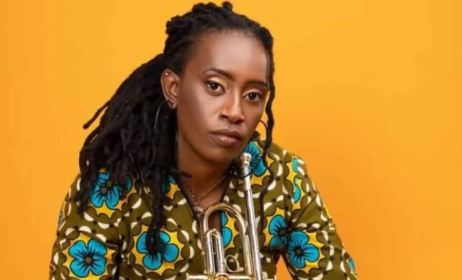
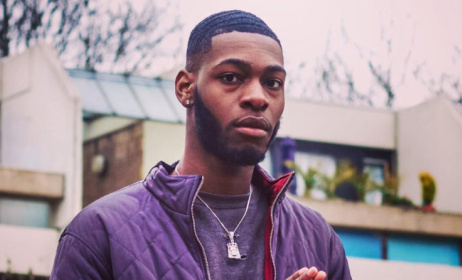
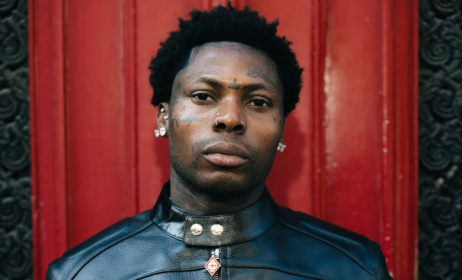
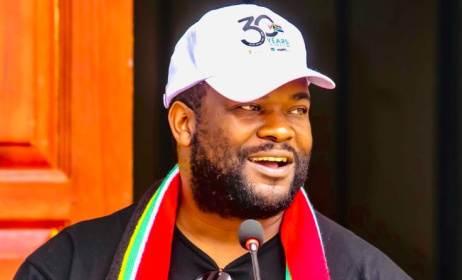
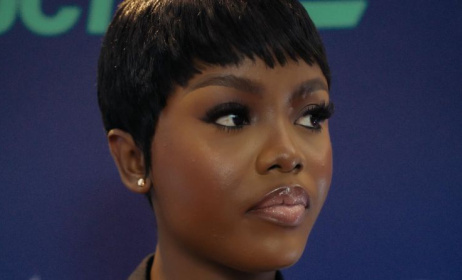

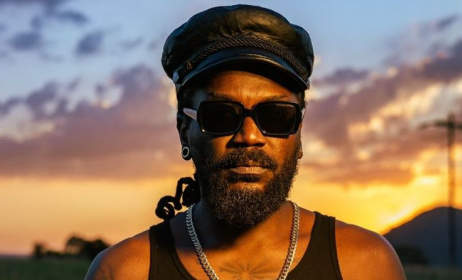
Comments
Log in or register to post comments